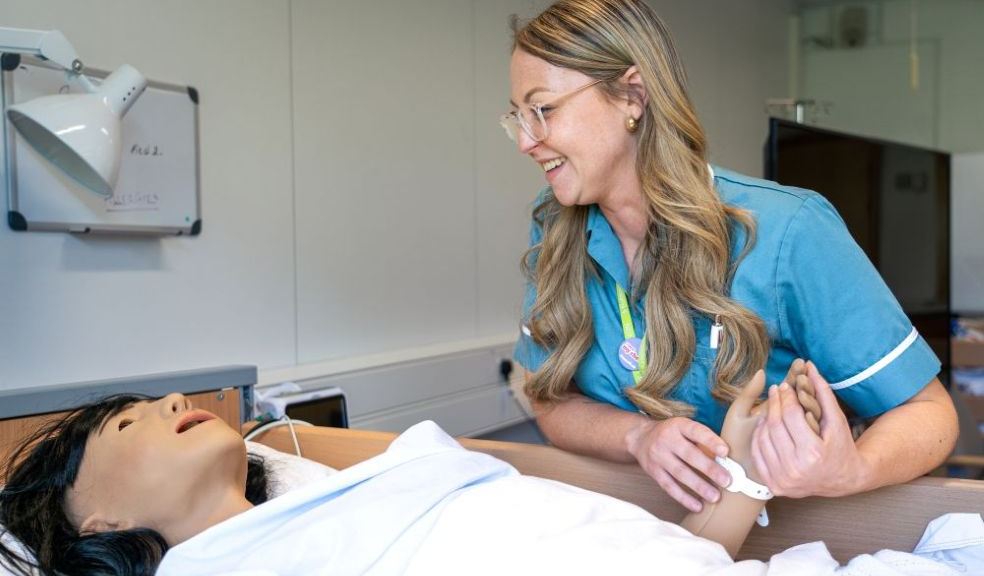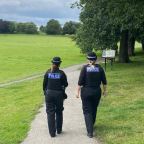
University Centre South Devon responds to crisis in the nursing sector
A Devon university is responding to a crisis in growing and retaining nursing students, apprentices and early-career nursing staff, by offering unique programmes that will ensure a robust and future-ready nursing workforce.
University Centre South Devon is the first and only Further Education (FE) college in the UK with higher education provision approved by the Nursing and Midwifery Council (NMC) to deliver the Nursing Associate programme under its own Foundation Degree Awarding Powers (FDAP).
This innovation in nursing education is bucking the trend as nationally 21% of nursing students will drop out before graduation.
According to a recent report by the Royal College of Nursing called Fixing the Leaking Pipeline, financial issues are the main reason why students withdraw from nursing courses, along with poor experience of clinical placements and academic issues.
“We are setting the national benchmark for innovation in nursing education,” said Ella Reynolds, Programme Coordinator and Lead for Nursing Professions, University Centre South Devon.
“Of the students that have graduated so far, 100% have achieved a good degree, a 2.1 or higher, and all students are either currently employed as Registered Nursing Associates or in further study across adult nursing, child nursing and midwifery.
“This exceptional achievement reflects our deep commitment to addressing the workforce challenges specific to Torbay and the Southwest while contributing to the wider nursing pipeline nationally.
“As a key educator in the Torbay and Southwest region, we are uniquely positioned to support the local healthcare system with a forward-thinking, resilient workforce equipped to meet the growing demands of our communities.”
The two-year Nursing Associate programme based at the University Centre, part of South Devon College, provides a direct route to becoming a Registered Nursing Associate. After two years, students are also able to take the new Nursing Apprenticeship route or top-up their studies at university to become a Registered Nurse.
Students on the Nursing Associate programme at the University Centre split their time between academic study and hospital and community placements, developing the skills needed to work within the NHS or other healthcare settings.
21-year-old Dina Kharel says she has always wanted to work in healthcare but wasn’t sure in what area exactly.
“I started as a Level 2 Health and Social Care student in South Devon College, then went on doing Level 3 at the same college. I really enjoyed learning about everything that involves care. Therefore, I applied for university here to do further studying. Since being in university as a Nursing Associate student I have learned a lot of skills - the most valuable skills and knowledge I have gained during my course is communication, professionalism, to be a team in the work setting.”
But recruitment is only half the story. According to the same RCN report, the number of UK-trained nursing staff leaving The Nursing and Midwifery Council register within 10 years has risen by 43% and those leaving within just five years is up by 67%.
“It’s not enough to teach technical skills. We must prepare students for the realities of modern healthcare including the emotional toll,” said Ella Reynolds.
“That’s why we’ve embedded a module focused specifically on retention, resilience, and wellbeing into our Nursing Associate programme. Students explore case studies on burnout prevention, long-term coping strategies, and tools for navigating complex healthcare systems. The emphasis is not only on surviving, but on thriving.
“Wellbeing support runs through everything we do. Students have access to confidential counselling, regular mental health check-ins, and peer support groups designed specifically for those in nursing education. We’ve also integrated stress management workshops into the curriculum to foster self-awareness and healthy coping habits.”
Simulation-based learning is another key area where students gain hands-on experience in a risk-free setting where they can develop clinical decision-making and problem-solving skills.
As a local university centre, students benefit from small group sizes and get to develop a strong relationship with fellow students and lecturers. After each session, students take part in structured debriefs not just to reflect on clinical skills, but to process the emotional side of care. It’s a space where students feel supported, heard, and confident to grow.
'Ultimately my ambition is to become a registered nurse,” explains 28-year-old Brittany Frost, who has just received an offer of a place for a BSc Adult Nursing top-up after building confidence and resilience through the Nursing Associate pathway.
“I have had many questions as to why I decided to do the Nursing Associate course and not the Registered Nurse degree. To put it simply, initially it was due to grade criteria, and this was the next best way to get to my end goal. However, looking back I can see this was the best possible decision I could have made for myself, even though I didn’t realise it at the time.
“On reflection I do not feel I would have coped well attending a big university with hundreds of other people. If I did manage to cope, I know it would have been painfully stressful and unsustainable for me with my responsibilities as a mother and occupational health requirements. I realise I needed the extra support and time that may not have been available to me at a bigger university and realise it was a blessing in disguise and has helped me to succeed in my role as a student nursing associate.”













